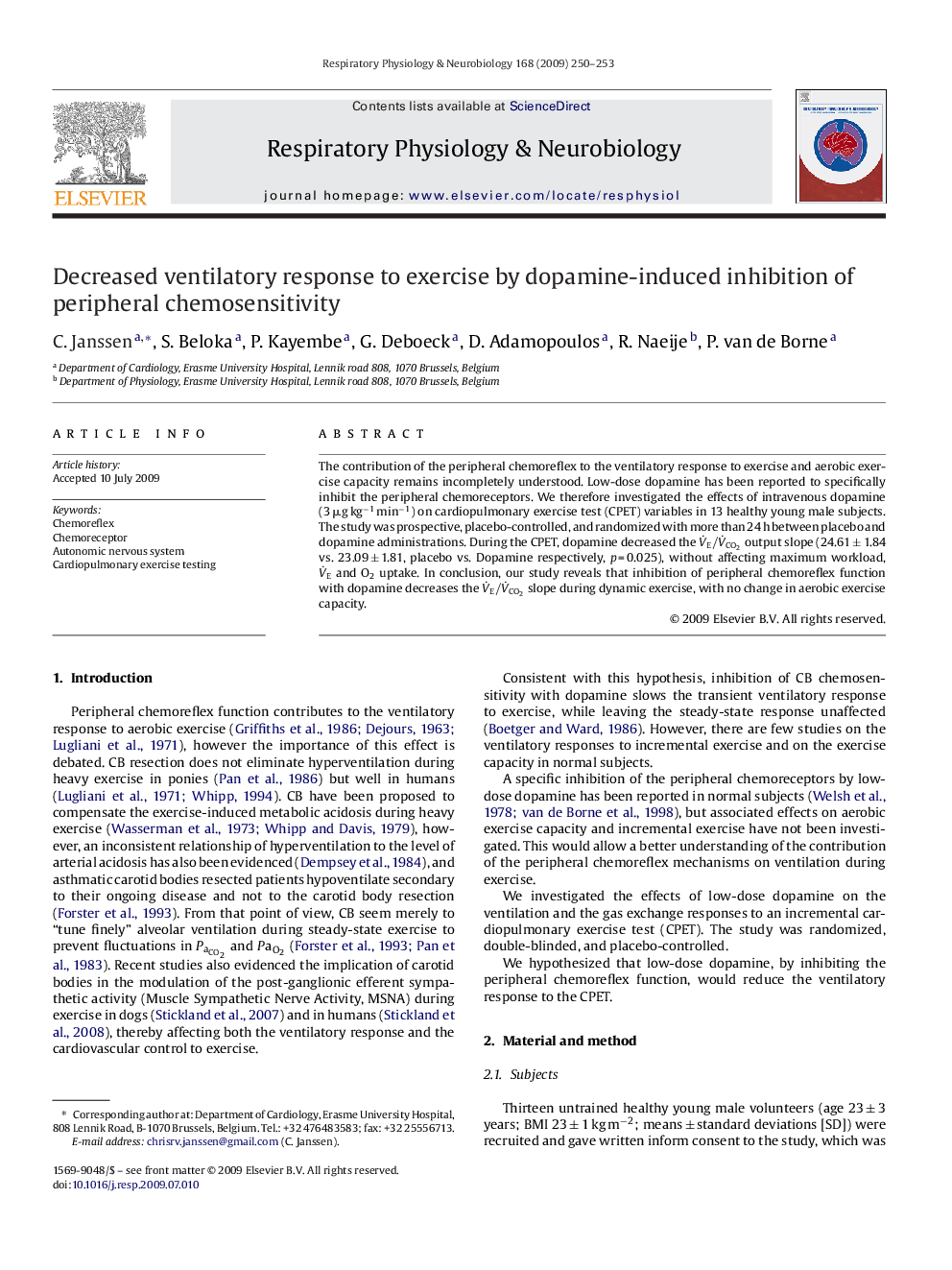| Article ID | Journal | Published Year | Pages | File Type |
|---|---|---|---|---|
| 2847919 | Respiratory Physiology & Neurobiology | 2009 | 4 Pages |
The contribution of the peripheral chemoreflex to the ventilatory response to exercise and aerobic exercise capacity remains incompletely understood. Low-dose dopamine has been reported to specifically inhibit the peripheral chemoreceptors. We therefore investigated the effects of intravenous dopamine (3 μg kg−1 min−1) on cardiopulmonary exercise test (CPET) variables in 13 healthy young male subjects. The study was prospective, placebo-controlled, and randomized with more than 24 h between placebo and dopamine administrations. During the CPET, dopamine decreased the V˙E/V˙CO2 output slope (24.61 ± 1.84 vs. 23.09 ± 1.81, placebo vs. Dopamine respectively, p = 0.025), without affecting maximum workload, V˙E and O2 uptake. In conclusion, our study reveals that inhibition of peripheral chemoreflex function with dopamine decreases the V˙E/V˙CO2 slope during dynamic exercise, with no change in aerobic exercise capacity.
